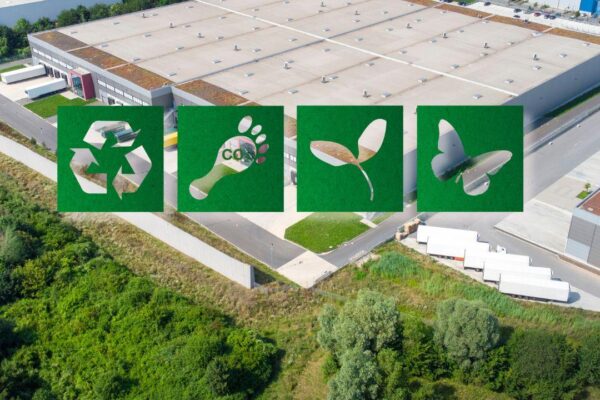Table of Contents
ToggleWhat Is Sustainability in Business?
Sustainability in business refers to operating in a way that meets current needs without compromising the ability of future generations to meet theirs. It means being conscious not just about profit, but also about people and the planet — and making sure all three are part of long-term decision-making.
This includes everything from how a company sources materials, to how it treats employees, to how it measures and reduces its environmental impact. In short: it’s about building a business that thrives responsibly.
Read other articles : Digital Transformation to Support Environmental Sustainability
Why Is Sustainability Important?

Today’s business landscape is shifting. Climate change, social inequality, and resource scarcity are no longer distant concerns, they’re realities affecting industries across the globe.
Meanwhile, public expectations are rising. Consumers want to support ethical brands. Employees are looking for meaningful workplaces. Investors are paying attention to ESG (Environmental, Social, and Governance) metrics more than ever before.
Choosing sustainability isn’t just the right thing to do, it’s becoming a business necessity. Companies that embrace sustainable practices are more resilient, better prepared for future regulations, and more trusted by their stakeholders.
Benefits of Sustainability in Business
Sustainability offers a wide range of benefits that go beyond environmental impact:
- Operational efficiency: Using resources wisely often reduces waste and cuts costs.
- Risk management: Sustainable companies are better prepared for supply chain disruptions and policy changes.
- Brand reputation: A clear sustainability commitment helps build customer loyalty and trust.
- Access to capital: More investors are backing companies with strong ESG performance.
- Talent attraction: People want to work for organizations that align with their values.
Sustainable business isn’t a trade-off — it’s a long-term investment.
So Where Do You Start Its Sustainability?
Starting your sustainability journey doesn’t have to be overwhelming. Focus on what’s within reach. For some companies, that means switching to more eco-friendly materials. For others, it’s about improving internal processes or tracking emissions.
Two areas often overlooked, but highly impactful — are:
- Custom merchandise: Branded items are everywhere, but not all are made responsibly. Choosing sustainable materials for your merchandise can reflect your values in a visible, tangible way. That’s something we at TRI Cycle help businesses do, by producing custom kits and products using environmentally-conscious materials and ethical processes.
- Measurement and reporting: Good intentions aren’t enough — you need data to back it up. That’s where Satuplatform comes in. They support businesses by simplifying their ESG, carbon tracking, and sustainability reporting, helping them understand their progress and communicate it clearly.
Sustainability isn’t just a trend. It’s a sign of a business that’s thinking long-term — for its customers, its people, and the planet.
You don’t need to be perfect. You just need to begin — and keep going.
Similar Article
Low GHG Emission, High Impact: Everyday Materials That Could Reshape Green Manufacturing
The shift toward sustainable production practices has spurred growing interest in low-carbon materials that support greener industrial processes. Emerging materials,…
Does “Eco-friendly” Labels Mean Green Product in Green Industry?
Businesses and consumers alike are navigating a flood of products claiming to be “eco-friendly” or “green.” These labels, often used…
Dilema Biomassa: Transisi Energi Berkelanjutan atau Perusakan Lingkungan?
Dalam upaya mencapai target net-zero emission pada 2060, Indonesia mendorong transisi energi dari bahan bakar fosil ke sumber energi terbarukan.…
Energi Terbarukan di Indonesia: Mengapa Surya dan Hidro Menjadi Pilihan Utama?
Sebagai negara kepulauan terbesar di dunia, Indonesia menghadapi tantangan besar dalam memenuhi kebutuhan energinya. Di tengah komitmen untuk mencapai net…
Emisi Karbon Penerbangan Meningkat: Tantangan Baru bagi Industri Aviasi
Emisi Karbon Sektor Penerbangan Setelah mengalami penurunan drastis selama pandemi COVID-19, industri penerbangan global kini menunjukkan pemulihan yang signifikan. Namun,…
Adaptasi Bisnis di Era Krisis Energi
Pasokan bahan bakar menjadi semakin terbatas, dengan harga yang melambung tinggi, merupakan salah satu bukti bahwa dunia sedang mengalami krisis…







